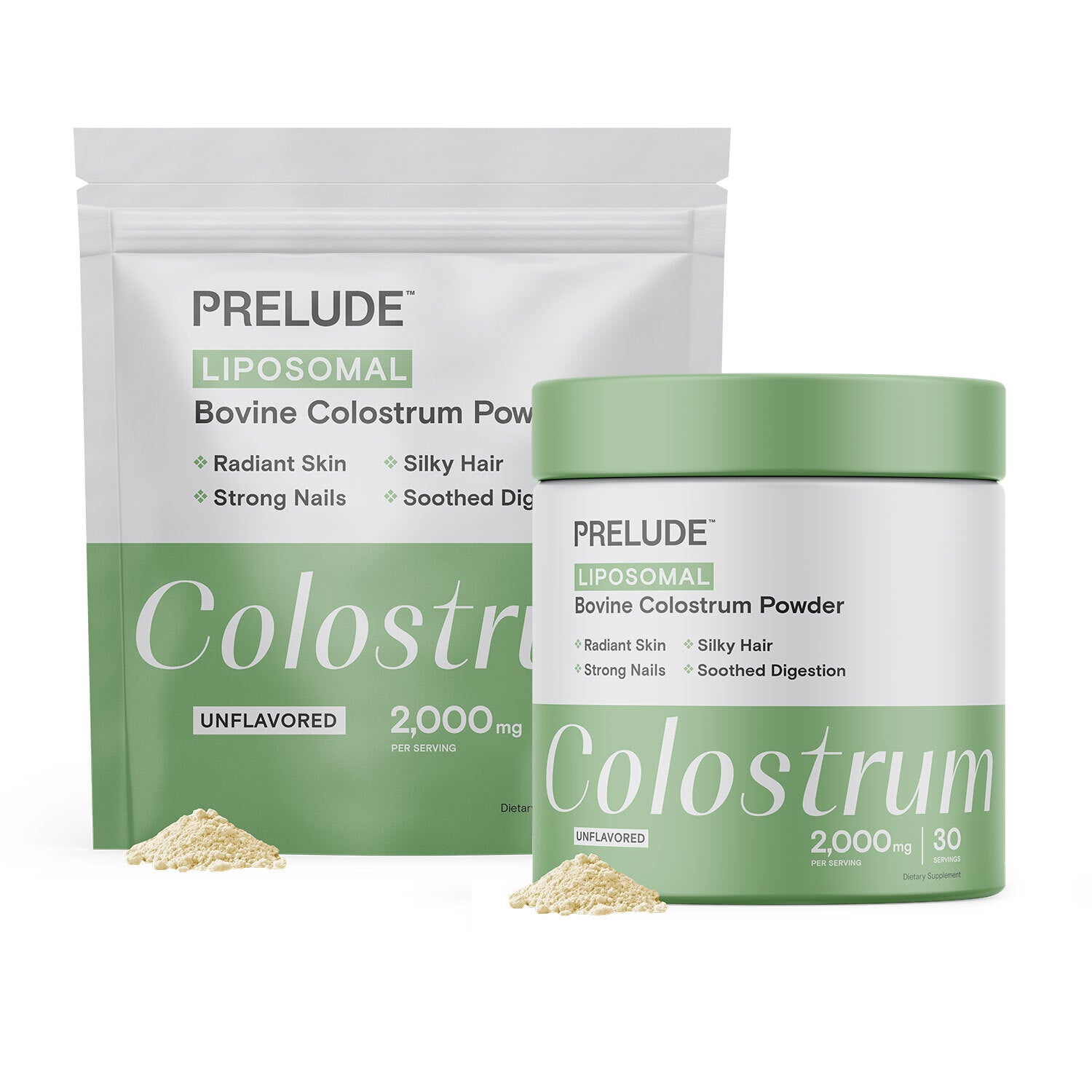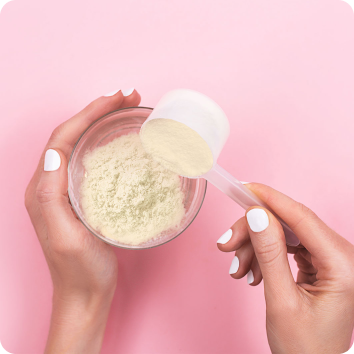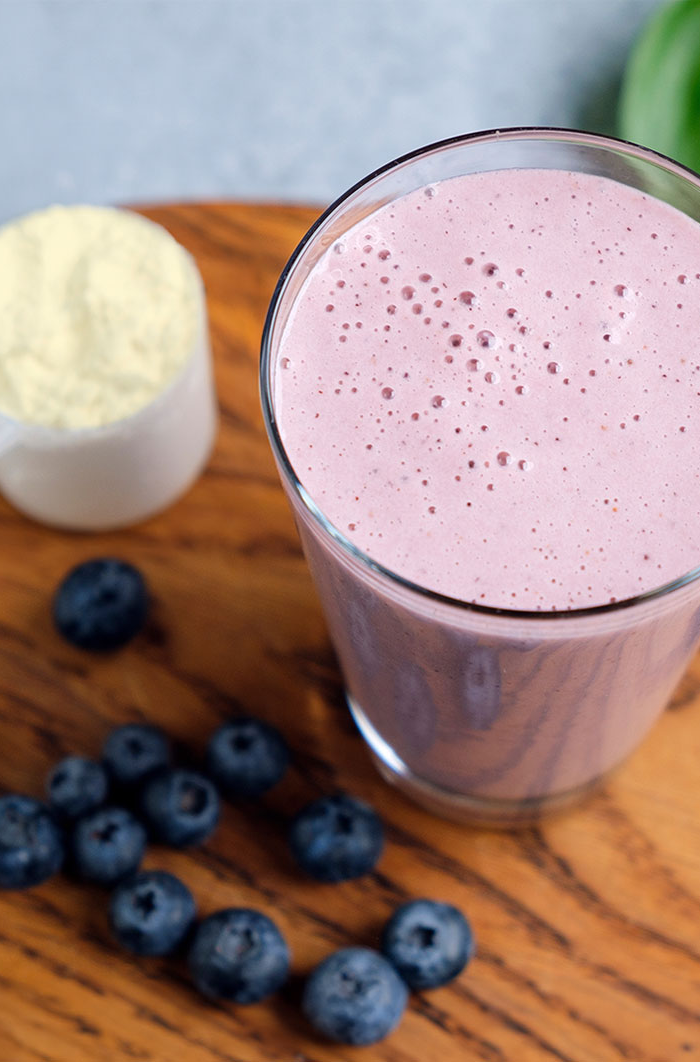
Top 10 Supplements to Boost Your Immune System
With so many options for supplements, it can be hard to choose which ones are best to boost your immune system. However, increasing amounts of research have demonstrated that vitamin supplements can aid in a variety of health situations. If you’re curious about what boosts your body may need, we’ve compiled a list of some of the best supplements for immunity. Take a look to learn more about which supplements you can ask your doctor about incorporating into your routine.
Why are immune system supplements important?
Your immune system is your body’s go-to defense structure—it protects you against germs and viruses that can make you sick. Vitamins and minerals can improve the efficiency and functionality of your immune system. However, 92% of the US population is deficient in at least one vitamin or mineral, meaning many are left vulnerable to a variety of health conditions.
The good news is that finding sustainable ways to boost your immune system can improve your overall health. Read on to learn about supplements that may be right for you.
1. Vitamin D
Vitamin D is a fat-soluble vitamin that can be commonly found throughout the natural world. This vitamin mainly promotes the absorption of calcium in the digestive tract. Calcium is essential for bone development and strengthening, so a body’s ability to break down and absorb the nutrient is essential for healthy growth.
Vitamin D deficiency is pretty common, and can occur for a variety of reasons. You might not be eating enough vitamin-rich foods or spending too much time indoors. An inadequate amount of Vitamin D in the body can harm bone development and lead to bone issues down the line.
Fortunately, there is no shortage of ways to get the right amount of Vitamin D. Dairy milk, an additional source of calcium, is Vitamin D-rich. Lovers of seafood will be happy to know that trout, salmon, sardines also provide relatively high levels of the vitamin.
The sun itself is another easy-to-access point of supply for Vitamin D. A particular type of UV radiation helps break down certain cholesterol precursors found in the skin into Vitamin D3. Exactly how much Vitamin D3 is developed depends on the length of sun exposure, individual sun sensitivity, and overall air quality, amongst other factors. While you should always wear sunscreen when anticipating lengthy exposure to the sun, you don’t need to worry. Vitamin D can still be absorbed through skin slathered in sunscreen.
If all else fails, Vitamin D supplements are available at most retail pharmacies. These supplements most often come in the form of a capsule or an oil.
2. Colostrum
Colostrum is the first milk that mammals (including humans) produce after giving birth. It’s packed with nutrients and special compounds to support newborns in their start in life. As cows frequently produce more colostrum than their calves need, the excess can be ethically sourced to make a great immune supplement.
One example is colostrum is packed with antibodies, making it an ideal booster for the immune system.
Your gut health may also see some improvements with the help of colostrum. A research study found that colostrum supplementation can help alleviate diarrhea. Keeping your gut in check can help stabilize your hydration levels and prevent any other unwanted side effects.
In its raw form, colostrum is a thick, milky fluid. However, bovine colostrum can be processed and is now found in a range of products. Colostrum powder and gummies made with colostrum as a main ingredient are popular and delicious ways to incorporate it into your diet. Topical treatments, such as oils, that contain colostrum may also improve skin regeneration.
3. Vitamin C
Vitamin C is an important nutrient for your blood vessels. As an antioxidant, this vitamin is a powerful immune supplement that helps fight against the effects of smoking, spending too much time in the sun, and other environmental inputs. Since Vitamin C also supports your production of collagen, it can also help close wounds efficiently.
Not getting enough Vitamin C can result in scurvy — yes, you read that right. It’s not just an illness for pirates from storybooks, but a real sickness that can result in fatigue and inflammation of the gums. In children, a notable lack of Vitamin C can also lead to poor bone development.
Don’t start picking up the hook and peg leg just yet! Vitamin C can be found in many popular foods and food products. Red peppers, oranges, and grapefruits all have high concentrations of this antioxidant. Even a baked potato can add a significant boost to your Vitamin C supply.
Vitamin C supplements are widely available at retailers, as well. You can purchase a Vitamin C supplement in a dedicated capsule form or as part of a general multivitamin. Several brands also offer powders intended to be mixed into water that transform into delicious vitamin-rich drinks. These drinks are usually created to taste like natural juices, such as orange and grapefruit.
4. Zinc
Many people associate zinc with common cures for colds, but it can do so much more. This mineral is a key piece in many cellular metabolic processes. As such, it plays a big role in protein synthesis and cell division, which can assist with wound healing and muscular development. During pregnancy, zinc can help the fetus grow healthily.
Because zinc is so essential to seemingly countless different cellular functions, deficiency can lead to just as many negative side effects. Children who don’t receive proper amounts of zinc can experience a stunt in their overall physical development. Zinc deficiency has even been linked to interferences with taste and smell.
The foods richest in zinc are commonly found in the ocean. Oysters, blue crab, and shrimp rank among the food products with the highest concentrations of the mineral. Vegetarians need not miss out on appropriate zinc levels, however. Peanuts and lentils can also add a much-needed boost.
Zinc supplements can usually be found wherever other cold medications can be purchased. As with many other minerals, the supplements might be of the tablet variety or integrated into other multivitamins. Certain brands also manufacture zinc lozenges that are intended to help people suffering from various flu and cold symptoms.
5. Selenium
While lesser known than some of its fellow minerals, selenium is a mineral equally worthy of a little boost. Selenium is an antioxidant that has been linked to improving DNA’s ability to break down cancer cells.
What’s more, your thyroid particularly relies on selenium in order to properly function. In fact, the thyroid has the highest concentration of the mineral than any other organ in the body. This means that the thyroid is particularly impacted when during a selenium deficiency. As the organ in charge of your metabolism and a crucial part of overall growth, it’s important to give your thyroid the support it needs.
Your thyroid isn’t the only part of your body that may feel the effects of a selenium deficiency. Research indicates that patients suffering from Alzheimer’s disease have lower levels of selenium in their bodies than their healthy counterparts.
As always, there are numerous ways to raise your selenium intake. Like many other nutrients, selenium can be found in its highest natural concentrations in various seafood and lean red meats.
Although less common than some other vitamins, selenium supplements are produced as both capsules and tablets, and they are often no more expensive than your average multivitamin.
6. Echinacea
Some may be hesitant to take supplements wholly produced in a lab. For these folks, it may be worthwhile to investigate ways to boost your immune system naturally.
Echinacea is an herb you may already have seen. It’s a prickly plant with a large conical seed head that is a member of the daisy family. For hundreds of years, echinacea has been used as part of various Native American traditional medicinal practices to treat headaches and inflammation — and for good reason. Recent research indicates that regular intake of the herb may reduce your chance of developing a cold.
That being said, those who take echinacea often do so to reduce the effects of a cold or flu already in progress. Because lower levels of inflammation indicators are often reported after regular doses of echinacea, some may experience shorter headaches or an alleviation of pain from a sore throat.
Eczema sufferers may also enjoy adding echinacea to their daily routines. In one study, regular application of a cream containing echinacea extract alleviated some eczema symptoms.
Aside from creams, echinacea supplements can be taken as tablets or pills. Those who dislike swallowing tablets may enjoy its incorporation as an ingredient in tea produced by certain brands.
7. Elderberry
The elderberry can be found naturally in warmer portions of Europe, North America, Asia, and Northern Africa. It grows on the elderberry tree and is recognizable by its dark purple color.
While little formal research has been done on the effects of regularly incorporating elderberry into your diet, it may be wise to take some when you’re feeling under the weather. Research has indicated that consuming elderberry may be linked to shorter time spans for cold and flu symptoms.
It’s important to note that, even if you have an elderberry tree in your own backyard, you shouldn’t go out and eat some straight from nature. For the human body to digest them properly, elderberries need to be cooked. Even if you do make your own elderberry supplements, research has only been conducted using commercially-produced supplements. Very little is known about what home remedies made using the berry might, or might not, do for your overall health.
Having acknowledged that, there are several ways in which you can safely take elderberry supplements and see if it has any effects on your own flu symptoms. Tablets and capsules are widely available. Elderberry is also often paired with other berries in fruity or herbal teas.
8. Garlic
This common kitchen ingredient might be doing more for your health than you ever knew! This member of the onion family grows in a variety of climates, so it’s no wonder that it has become a staple in cultural diets around the world.
On top of being a delicious addition to some of your favorite dishes, garlic offers many health benefits. Participants in a study published in 2016 found that regular intake of garlic lowered the severity of cold and flu symptoms, and illnesses of that nature were shorter-lived.
Garlic can also take your health up a notch, even when you’re not ill. In certain people, garlic may be successful in lowering blood pressure. A lower blood pressure reduces the chance of cardiovascular events, such as heart attacks.
There is even some evidence to suggest that garlic can support athletes. Rodent studies have indicated that garlic can help improve exercise performance. Although little human research has been done, and there is not a large body of evidence to support its effectiveness on humans, it may be possible that adding more garlic to your diet might help you on your next long run.
While garlic is often ingested, garlic oil is also available as a topical aid that may help soothe burns.
9. Probiotics
The microbiome of the gut is a delicate system. Probiotics are live microorganisms that can help bring balance to your digestive tract and other areas of your body. Since the digestive system breaks down food in the body, it is important to keep it in tip-top shape to maintain overall health.
Your body already produces and hosts trillions of its own microorganisms. They are essential for proper development and a fully functioning immune system. Probiotics act as backup for your body’s microorganisms and add beneficial microbes to your body’s overall biome.
Probiotics are particularly helpful for people whose immune systems might be compromised. If you have taken antibiotics before, you may have experienced diarrhea. Probiotics have been shown to help curb this side effect.
Probiotics may even help with conditions that go beyond the physical level. Research suggests that probiotics can improve certain mental health disorders in both humans and animals.
Probiotic products vary widely, and the best product for you might be determined based on the health issues you are trying to address or improve. Oral supplements, such as capsules, usually contain probiotics aimed at improving your gut health. Topical probiotic products, like creams and ointments, may help those with eczema find relief from their symptoms.
10. Turmeric
Turmeric is a plant that is native to Southeast Asia. When dried and ground, it is a common ingredient in curry powder. It follows, then, that it is often featured in Indian and other South Asian cuisines.
As a health supplement, turmeric is best known for its anti-inflammatory effects. Taking a turmeric supplement may significantly reduce swelling caused by immune responses within the body. Turmeric is fat-soluble, but it has a hard time breaking down in the body on its own. It may be wise to take this supplement with a meal that is high in fat.
Turmeric can be great for heart health, as well. Research has indicated that curcumin, a type of compound found in turmeric, can improve the functionality of your blood vessel linings. Strong blood vessel linings can help defend against heart disease and regulate blood pressure.
Turmeric supplements are usually created as capsules or soft chews.
Adding supplements to your daily routine
If you’re curious how your life might improve with the addition of dietary supplements, talk to your doctor. Together, you and your physician can discover where you may be lacking nutrients and what the best immune supplement for you might be.
Taking a regular supplement doesn’t need to be a chore. Tying your supplement intake to an already established routine can make supplementing a breeze.
Supplement intake in your life might look like:
- Adding a capsule to your medication routine.
- Having another delicious drink with lunch made using a supplement powder.
- Enjoying a small treat in the mid-afternoon with a soft chew infused with vitamins.
- Putting an extra step in your skincare routine.
Finding the right colostrum supplement
Colostrum supplements can be affordable and delicious. When seeking out a colostrum supplement to add to your immune defense strategy, look for producers that never compromise on the ethical sourcing of their colostrum. Your colostrum supplement should also be as minimally processed as possible so you can take full advantage of the available health benefits.
Prelude Colostrum Supplements are always made using excess supply colostrum, meaning that no calves are denied the colostrum they need to thrive. Our delicious gummies will make you look forward to taking steps to improve your health. Check out our full lineup of products to find the supplement that’s right for your life.
Sources:
- https://ods.od.nih.gov/factsheets/VitaminD-HealthProfessional/
- https://www.skincancer.org/blog/sun-protection-and-vitamin-d/#:~:text=UVB%20wavelengths%20happen%20to%20be,maintain%20their%20vitamin%20D%20levels.
- https://www.mayoclinic.org/drugs-supplements-vitamin-c/art-20363932
- https://ods.od.nih.gov/factsheets/VitaminC-HealthProfessional/
- https://pubmed.ncbi.nlm.nih.gov/29260510/
- https://ods.od.nih.gov/factsheets/Zinc-HealthProfessional/#en5
- https://pubmed.ncbi.nlm.nih.gov/29099763/
- https://www.healthline.com/nutrition/selenium-benefits#1.-Acts-as-a-powerful-antioxidant
- https://pubmed.ncbi.nlm.nih.gov/24668390/
- https://www.ncbi.nlm.nih.gov/pmc/articles/PMC6179083/
- https://www.healthline.com/nutrition/echinacea
- https://www.ncbi.nlm.nih.gov/pmc/articles/PMC8320399/
- https://pubmed.ncbi.nlm.nih.gov/28610718/
- https://pubmed.ncbi.nlm.nih.gov/28198157/
- https://www.healthline.com/nutrition/elderberry#health-benefits
- https://www.nccih.nih.gov/health/elderberry
- https://www.sciencedirect.com/science/article/pii/S0022316623005266
- https://www.healthline.com/nutrition/11-proven-health-benefits-of-garlic#boosts-immune-system
- https://www.ncbi.nlm.nih.gov/pmc/articles/PMC6966103/
- https://pubmed.ncbi.nlm.nih.gov/31039287/
- https://pubmed.ncbi.nlm.nih.gov/27413138/
- https://my.clevelandclinic.org/health/treatments/14598-probiotics
- https://www.healthline.com/nutrition/8-health-benefits-of-probiotics#mental-health-conditions
- https://www.prnewswire.com/news-releases/dietary-supplement-market-to-reach-us-170-1-billion-by-2034-amid-rising-focus-on-preventive-healthcare-and-weight-management-302035835.html
- https://www.who.int/publications/m/item/WHO-WFP-UNICEF-statement-micronutrients-deficiencies-emergency
- https://www.healthline.com/nutrition/top-10-evidence-based-health-benefits-of-turmeric#heart-disease
- https://pubmed.ncbi.nlm.nih.gov/28274852/
- https://www.ncbi.nlm.nih.gov/pmc/articles/PMC5664031/
- https://www.nccih.nih.gov/health/turmeric
- https://www.health.harvard.edu/nutrition/the-truth-about-nutrient-deficiencies
- https://www.ncbi.nlm.nih.gov/pmc/articles/PMC3825630/
- https://www.healthline.com/nutrition/bovine-colostrum#benefits
















